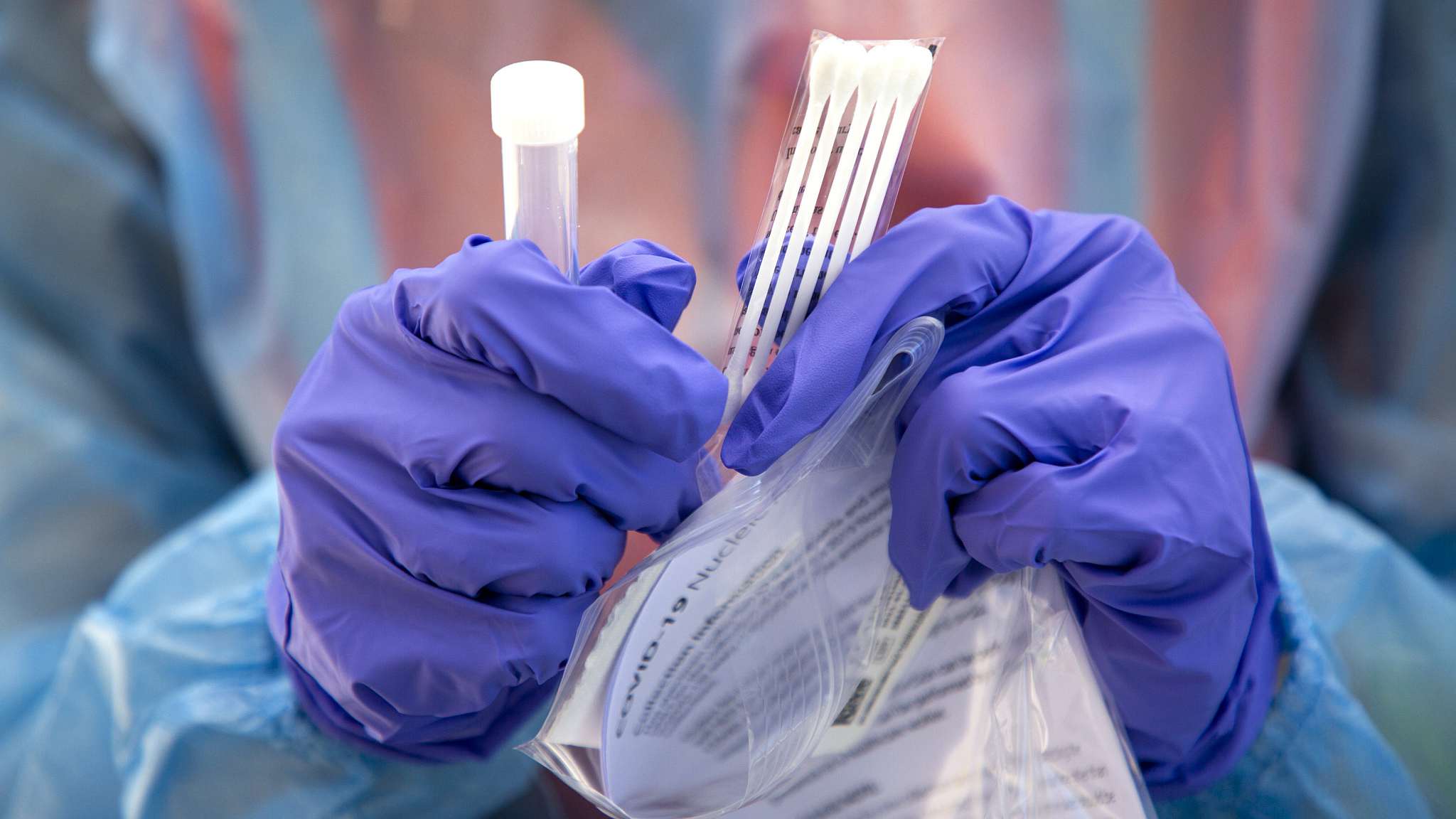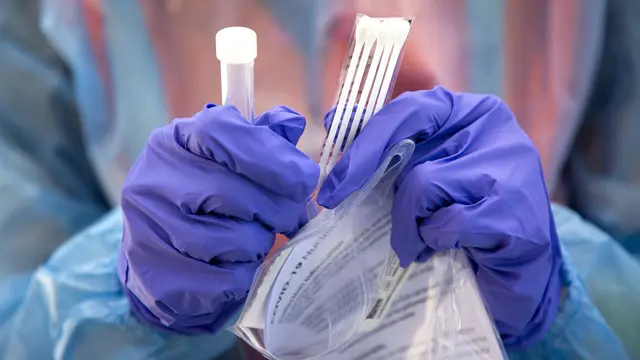
A medical staff prepares to take COVID-19 test for the public. /CFP
Researchers fear that the U.S. acted "too slowly" in monitoring the novel coronavirus due to its fragmented health system, allowing the virus' variants to spread undetected in the country, world's leading science journal
Nature
reported on Wednesday.
The U.S. Centers for Disease Control and Prevention (CDC) has listed five variants of concern, which may spread more easily, quickly and lead to more cases.
However, the country fails to keep abreast of these variants. It "lags behind at least 30 countries in terms of the sequencing it has done throughout the pandemic," and the number of genomes it shared in the international coronavirus genome database GISAID in March "represented only 1.6 percent of its positive COVID-19 cases that month,"
Nature
reported based on GISAID data, adding that the country could have done far more with its equipment and expertise.
A dozen of the academic researchers working at the country's leading virus-sequencing labs told
Nature
that the fragmentation in U.S. health system is holding their work back, making coordination "a gargantuan task" between hospitals, diagnostic testing labs, local health departments and sequencing centers.
Arthur Reingold, an epidemiologist at the University of California, Berkeley, called it "the biggest challenge" and "a nightmare" that the country does not have a single health system.
The sequencing work has also been hindered by financial limitations, as well as problems in sample saving and data sharing.
Though the U.S. government in January announced to provide more than $22 billion in supporting the nation's response to the pandemic, some institutions have been unable to operate at a normal pace because "federal money isn't flowing fast enough," said the researchers.
They also have to scramble to save samples for genomic sequencing, because some diagnostic labs discard the samples after testing, considering the labor and cost for storage or privacy reasons.
Duncan MacCannell, chief science officer at the CDC's Office of Advanced Molecular Detection, said they are making efforts to address the problem by helping diagnostic labs either ramp up their own sequencing or connect with labs that can.
Believing in that a government agency, like the CDC, is best positioned to cut through the red tape that prevents samples from moving to sequencing labs or data from flowing, MacCannell said "it is challenging in a pandemic."
 简体中文
简体中文

